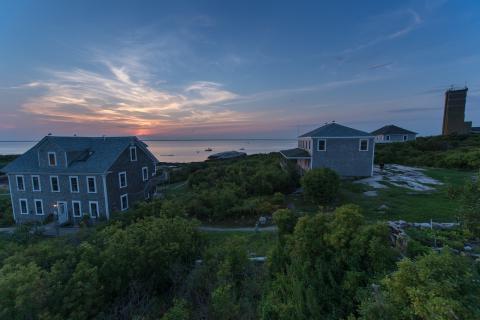
Academic field trips have long been integral to the University’s curriculum. 近年来, growing concern about travel and increasing attention to the need to manage risks associated with virtually all University activities prompts us to look at the manner in which academic field trips are conducted and to recommend certain best practices that are consistent, clearly communicated and offer the greatest likelihood of student safety, recognizing that the University cannot provide absolute assurances in this regard.
用于本文档的目的, an academic field trip is defined as a course related activity which normally involves travel for the group of students enrolled in a class . An academic field trip serves educational purposes and occurs outside of the classroom at a location other than the campus on which the course is regularly taught. Such trips may be scheduled during normal class hours or for extended periods outside of class.
风险确认及赔偿协议(Word)
风险确认及弥偿协议(PDF)
- 学术实地考察是大学赞助的活动.
- 只要有可能, academic field trips should be clearly identified in the course syllabus (as to location, time, 交通工具, and with some reference to inherent risk associated with the particular activity). The syllabus should also identify the academic field trip as “required” if this is the case.
- In addition to the description of risks in the syllabus, faculty members should discuss in appropriate detail with students the risks associated with the activity, 有关应急准备资料, as well as expectations for behavior during the activity (including transit to and from the location(s)).
- If there are students who will be participating for whom special accommodations are potentially necessary (as a result of disabilities), faculty should discuss these matters with the student(s) in individual settings. 如果需要, the Office of Disability Services for Students can assist with planning for accommodations.
- A College/department may require a student to sign a standard “informed consent” waiver that acknowledges risks associated with this activity.
- A faculty member or other designated University representative must accompany all academic field trips.
- 每当实际, the site of the academic field trip should be reviewed by the faculty member or an appropriate University representative in advance to evaluate potential risks and to mitigate, 在可能的范围内,通过有效的规划, 与地点相关的风险.
- 大学, 通过本署, 学校或学院, 应该有完整的位置信息吗, duration and transportation route for each academic field trip on file and accessible prior to the occurrence of the event
- 大学, 通过本署, 学校或学院, should have a complete list of all participating students including emergency contact information on file and accessible prior to the start of the event.
- University vehicles or chartered buses should be used for field trips.
- The faculty or staff member in charge of each academic field trip should ensure that s/he has access to communication (e.g.(手机).
- Each department should have a designated contact person on campus with information about the academic field trip and participants in the event that emergency communication is necessary.
- 教师 members should not use their private cars to transport students on field trips. It is recommended that they use University System vehicles or rent vehicles for this purpose. Employees must take a defensive driving course if they will be operating University System vehicles. USNH employees who drive their private cars in the course of their official job responsibilities are excluded from liability coverage under the University System’s automobile insurance policy. 大学包括在内, but employees’ only coverage for their liability is whatever they have under their personal automobile insurance. 进一步, the University System’s general liability policy excludes coverage for claims arising out of the use of an automobile.
- Students should not be required to drive their own vehicles to a field trip site; neither should they be required to provide rides to other students.
- Students participating in college-sponsored field trips are expected to conform to the same standards of behavior as published in the Students’ Rights, 规则与责任. 任何违反学生行为准则或当地, 状态, or federal laws may result in disciplinary action or sanctions by the College/University.
- 大学 does not have liability or automobile coverage for students driving themselves or other students to University-sponsored events. Automobile insurance policies held by the students are the primary and only policies covering them for injuries to themselves and others, 以及对他们的车辆或其他车辆的损坏.
- Departments should notify students who choose to ride in a private automobile that they do so of their own free will
